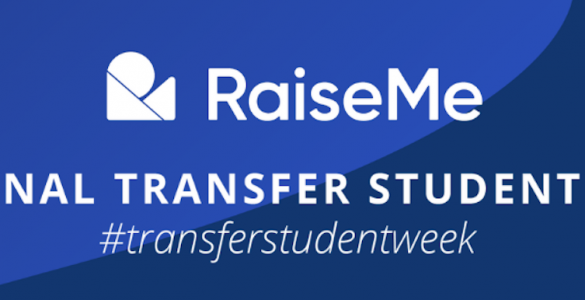Checking In With Yourself and Your Raisins
A note from the educator partnerships team on ways to support yourself and your community in trying times.
At RaiseMe, we affectionately call each other Raisins. Yes, Raisins — as in dried, shriveled up but still delicious grapes. It’s a way of saying we all belong to an umbrella of people who, in some way or another, work together and support each other. But the RaiseMe community is much bigger than our team: It includes every educator who uses our platform and every student who earns a micro-scholarship too. With the spread of the novel coronavirus, we’ve had all of you in mind. And while we cannot check-in with each of you individually (we wish we could), we can help provide support for when you are able to check-in with your students and peers.
That in mind, here are a few reminders for checking in with students or colleagues. We hope that they can be helpful in the months ahead.
Be prepared and define boundaries.
At any given time in our lives, there are thousands of variables we cannot control. Trying to control more than what our individual capacity can hold puts us in a state of chronic burnout. And, as the saying goes, we cannot pour from an empty cup. Before we head into a meeting or before we offer support, it can be helpful to ask ourselves: How prepared am I for this conversation? What does my capacity look like right now? What resources are available immediately? Does my district, high school, or college have a referral network in place for students navigating mental health crises, precarious housing, or food insecurity? Do I know where to find those resources? The better these answers can be mapped beforehand, the better prepared you can be for meeting student needs and respecting your own.
Students and colleagues are always carrying more than we can see.
Whenever we enter into a space, we bring more with us than our physical selves. We carry the anxieties, fears, and concerns of what is happening in the world around us and how those realities impact our individual lives. We might also be carrying legacies of generational trauma, systemic inequality, and / or disability. Young people are no different. When life does return to some version of normal, the impacts of COVID-19 may still be a source of trauma for many students and it is likely to impact their behavior and performance. In that vein, Teaching Tolerance’s article “A Trauma-Informed Approach to Teaching Through Coronavirus” can be a helpful reframe for navigating struggling students’ needs right now.
Feeling seen and heard.
Building successful classrooms and schools is partially rooted in how much students trust their environment and the people in it. For example, child psychologist Dr. Gabor Maté’s research demonstrates that young people are more likely to feel seen and heard by educators when children know they can build secure attachments to nurturing environments and show up as their authentic selves. Additionally, Geneva Gay’s research on culturally responsive pedagogy suggests that engaging students’ full range of cultural experiences helps build an inclusive academic experience. As students come by your classroom or office to check-in, ask: How am I making space for students to show up authentically? How am I creating an environment where students can feel seen and heard for who they are?
Reserve space for your own self-care.
Part of setting boundaries for ourselves is related to reserving space for our own self-care. Just like students need material, social and emotional support to realize self-actualization in their academic performance, educators need that support too for their own professional performance. Where possible, make space in your own schedule to check-in with yourself and take note of your own needs. As a team, consider how you are prioritizing each others’ needs and how finding that support for each other can ladder up to classroom, school, and district goals.
From one Raisin to another, we want to say we are grateful to all of you for the work you do every day to educate and serve millions of students. We are in awe of your ability to respond swiftly in the face of this unprecedented crisis and hope we can emulate your actions in our daily work. You’re our heroes — please reach out if there is anything you think we can be doing to be as helpful as possible during this challenging time.
You may also like

National Transfer Student Week 2020: Celebrate With RaiseMe!
Join RaiseMe in celebrating National Transfer Student Week October 19th-23rd. This is a week to celebrate our students, connect them with resources, and to...

Join RaiseMe’s Virtual Transfer Fairs: September 2020
During RaiseMe’s Virtual Transfer Fair, community college students can earn micro-scholarships for visiting with colleges, right from home. Students: we know it has...

RaiseMe: Everything Educators Need To Know for Back-to-School and More
A comprehensive overview for getting your high school students started with RaiseMe.

